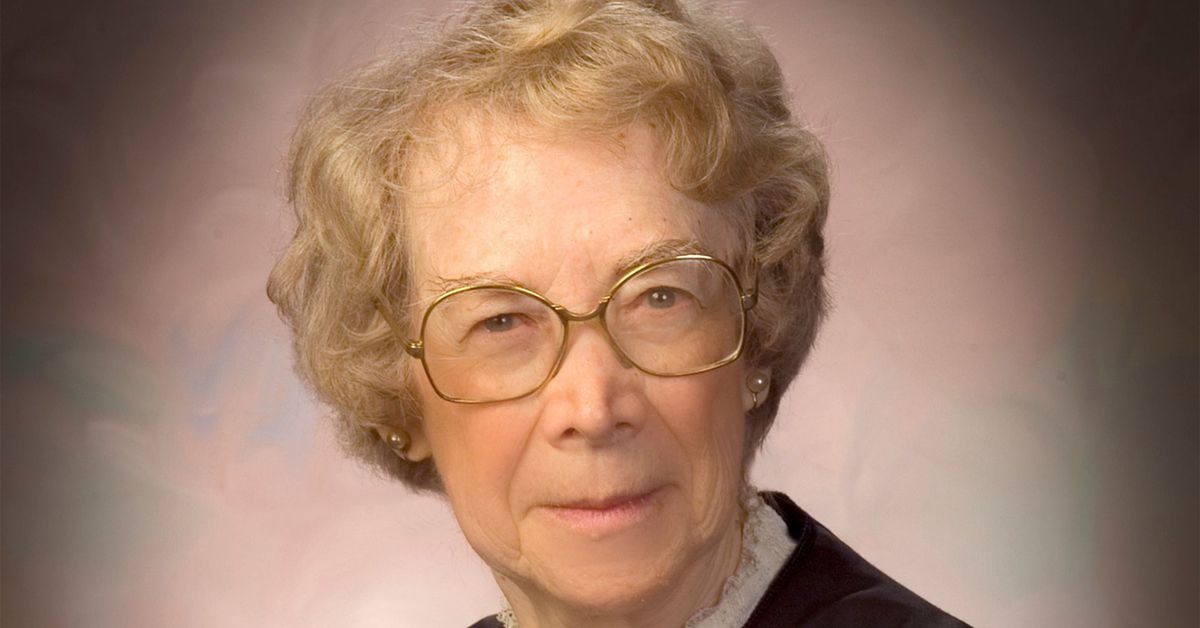Embattled US appeals judge takes stage at vaccine law conference
U.S. Circuit Judge Pauline Newman of the U.S. Court of Appeals for the Federal Circuit appears in an undated photo. U.S. Court of Appeals for the Federal Circuit/Handout via REUTERS Acquire Licensing Rights
- Pauline Newman said vaccine patent law was ‘dominant area’ to be concerned with
- 96-year-old judge said she has not studied report on mental fitness allegations
Sept 15 (Reuters) – Pauline Newman, the 96-year-old U.S. appeals judge who is fighting a probe into her mental fitness, spoke at a Washington, D.C. conference on Friday to urge more scrutiny into how patent law could affect the development of vaccines and other groundbreaking technologies.
“We must understand not just how the present law applies, but also to understand if it’s anything less than optimum, it’s in our hands,” Newman, the longest-serving member of the patent-focused U.S. Court of Appeals for the Federal Circuit, said during the panel discussion on vaccine law at George Washington University.
The judge told Reuters after her appearance that she was concerned that current patent eligibility law could hinder innovation in vaccine development and potentially undermine valuable intellectual property.
Patent eligibility is a controversial issue in patent law, and several lawsuits have been filed over technology used in COVID-19 vaccines including the blockbuster shots made by Pfizer and Moderna.
“It wouldn’t hurt to put our minds to some kind of revolution in the law,” Newman said. She noted the example of Democratic President Jimmy Carter’s Domestic Policy Review on Industrial Innovation, which led to new patent legislation and the formation of the patent-law focused Federal Circuit.
“Whether that was their best idea, I’m not sure at this stage,” she joked.
Newman, a former research scientist and patent attorney and a revered figure in patent law, was the first judge appointed directly to the Federal Circuit by President Ronald Reagan in 1984.
She is known as a prominent dissenter and has criticized the court’s rulings on patent eligibility, which she said in a 2020 dissent had “become so diverse and unpredictable as to have a serious effect on the innovation incentive in all fields of technology.”
In orders made public in April, the court’s Chief Judge Kimberly Moore said Newman had shown signs of cognitive and physical impairment and accused her of refusing to cooperate with inquiries into her mental health.
Documents released in August detailed reports from court employees of “memory loss, confusion, paranoia and angry rants” by Newman, and accused her of mishandling staff matters and failing to address a heavy backlog of pending cases.
A panel of three Federal Circuit judges accused Newman of misconduct for failing to comply with their investigation and recommended suspending her from hearing new cases. The court’s judicial council has already barred Newman temporarily from taking up new cases.
Newman has defended her fitness and filed a lawsuit in a separate Washington court seeking to move or halt the investigation. She declined on Friday to discuss the dispute in detail and said she had not studied the August report closely.
“I haven’t focused on it,” Newman said. “I should, and I will.”
Reporting by Blake Brittain in Washington
Our Standards: The Thomson Reuters Trust Principles.
Acquire Licensing Rights, opens new tab
Blake Brittain reports on intellectual property law, including patents, trademarks, copyrights and trade secrets, for Reuters Legal. He has previously written for Bloomberg Law and Thomson Reuters Practical Law and practiced as an attorney. Contact: 12029385713



/cloudfront-us-east-2.images.arcpublishing.com/reuters/IBW3YJIHNZM7PHR6N52U7LFG5E.jpg)
